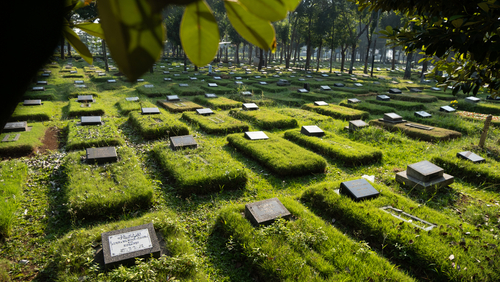Not only world investment, we as Muslims are also always instructed to think about the investment of the afterlife. Waqf is one of the practices that will be very useful for preparing the provisions of the afterlife. Most people understand that waqf must be done by the individual concerned before he or she dies. However, it turns out that there is also a type of waqf for the deceased that is given as a gift. How is the law?
Purpose of Waqf for the Deceased
Before deciding to make something happen, the Donor must first know the purpose of the action. Basically, waqf is often regarded as a way to save practice in the afterlife. When a person dies, then all things are cut off from him except 3 practices. Namely: Child’s prayers, useful knowledge, and the last one is the almsgiving of jariyah.
This jariyah almsgiving is called waqf. The reward born from this waqf will never be interrupted as long as the almsgiving is beneficial to society. That is what makes many people compete to represent their land or buildings to function as places of worship or other useful facilities. Of course, hopefully they will also get a severed reward when they passed away.
Forms of Waqf for The Deceased
What does the waqf look like for the deceased? Basically, waqf is divided into 3 types, namely: money, movable objects (other than money), and immovable objects. Here’s the explanation:
- Money
Donors who want to donate their property to the deceased can waqf in the form of money. The government has issued regulations that must be obeyed for those who want to donate their money. One of the conditions is that the money must be in the form of the original Indonesian currency, namely the Rupiah (IDR). In addition, donors must also meet a number of other conditions, namely:
- Provide a statement of willingness to donate money to the LKS-PWU institution
- Provide clarity on the origin of the money to be represented
- Deposit money in cash
- Fill out the waqf will declaration form
- Moving Objects (Other Than Money)
In addition to money, donors can also represent property in the form of movable objects. The definition of movable property is property that can be moved or moved to another place. The nature of these moving objects can also be spent for a certain period of time or is eternal or inexhaustible. Some examples of moving objects that can be represented are the holy books of the Qur’an, gold or precious metals, and jewellery.
- Immovable Objects
The last type of waqf property is immovable objects. Different from the type of movable property, immovable treasures cannot be moved or moved places. The shape of this treasure is usually in the form of land or buildings. This type of treasure can also be in the form of plantations.
Waqf Law for Deceased
What is the waqf law for a deceased? Basically, waqf is only intended for people who are really capable and willing to distribute their property for the benefit of the people. For those who want to donate their property for jariyah alms for their parents or closest relatives who have passed away, of course they want to know the law of giving this waqf gift.
The scholars agreed to allow anyone who wanted to give a waqf gift to the deceased. Of course, the waqf gift must meet a number of specified requirements. The waqf gift not only gives an unbroken reward to the deceased wakif. Donors as waqf gift givers will also get rewards.
Such is the review of the law and the sundries of waqf for the deceased. For donors who want to distribute waqf in various forms, they can do it easily through Dompet Dhuafa. This charity is known to be very trustworthy and will distribute waqf charities that Donors distribute to help the people. Donors will also get transparent donation details. So, what are you waiting for? Come on, waqf with Dompet Dhuafa.



